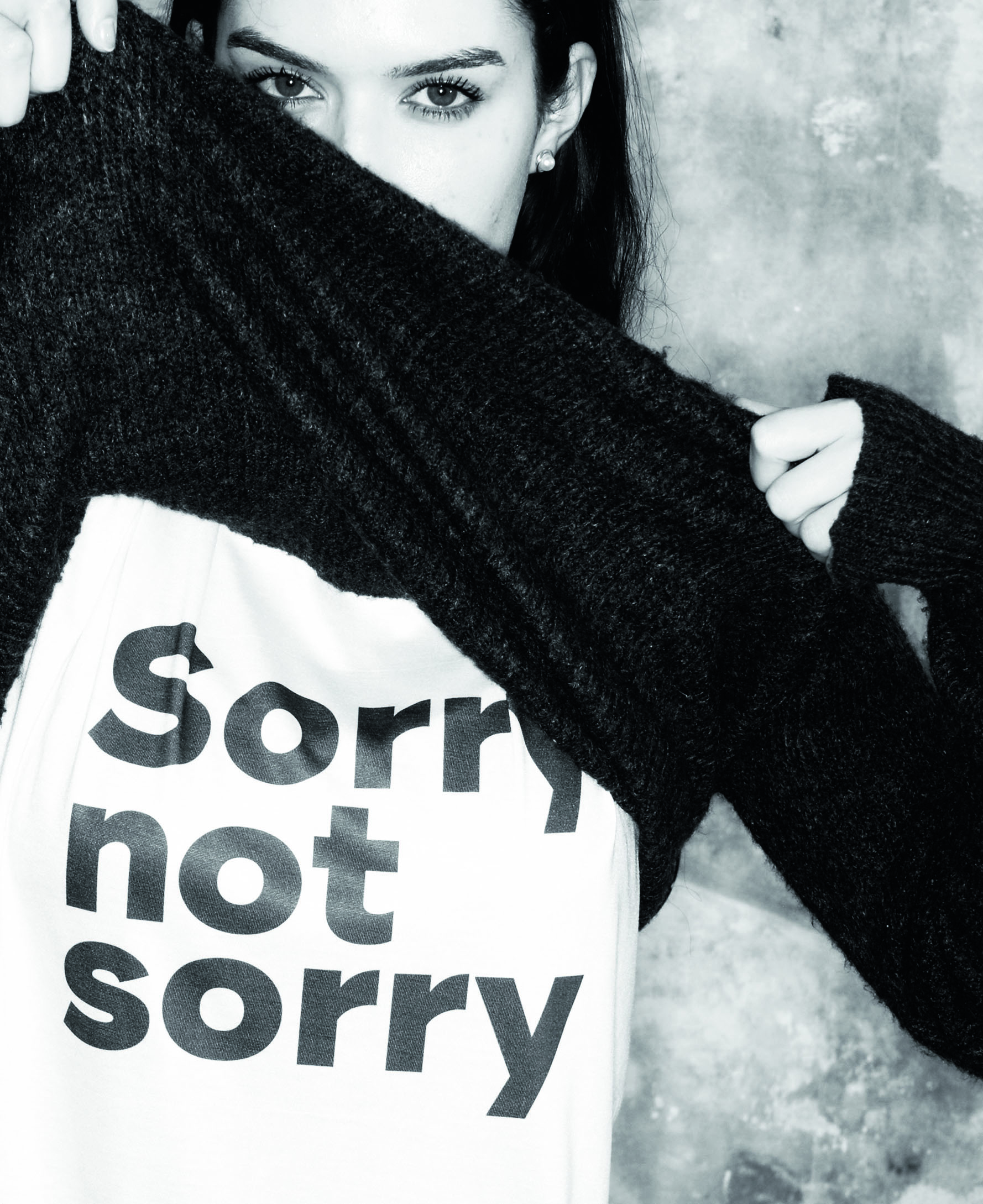Here's how to apologise and actually mean it (take note, Trump)
Sorry still seems to be the hardest word, explains Fiona Cowood

Sorry still seems to be the hardest word, explains Fiona Cowood
Perhaps schools should teach kids how to apologise from an early age, because it turns out we're all pretty rubbish at it.
Last year, a seemingly endless stream of people – from Hollywood producers like Harvey Weinstein to politicians – queued up to school us in the art of the ‘fauxpology’. To tell us they were sorry for being caught if their past behaviour had offended anyone. But how did they manage to get them so wrong and can we learn how to apologise better?
To unravel why we’ve hit peak sorry, rewind to last autumn and movie mogul Harvey Weinstein, who – following a damning New York Times investigation – issued a statement to the press. He blamed his behaviour on having come of age in the 60s and 70s when it was, by Weinstein’s logic, perfectly legitimate to sexually assault women. Hot on his heels, came Kevin Spacey, who apologised if a predatory incident with a 14-year-old actor had taken place – he simply couldn’t remember. This was closely followed by comedian Louis CK issuing a heartfelt 500-word apology that somehow failed to include the words ‘I’m sorry’. Add to this cabinet ministers Boris Johnson and Priti Patel, who were forced to apologise for damaging political mistakes within days of one another (Patel followed her apology with her resignation), and it’s clear that nobody knows how to apologise. That goes for us mere mortals, too.
Karen*, a 39-year-old events organiser from north London, had felt increasingly upset by her close friend Emma*, who would scroll through her phone during their meet-ups, barely listening to Karen, even when the subject turned to her mother’s poor health. ‘It was like talking to a teenage boy with no social skills – just rude,’ she says. Finally, one night, Karen called her out with a text to say she was hurt. ‘I felt sick as I hit send because I’m not a confrontational person, but I’d had enough,’ she recalls. ‘I expected my phone to ring right away. Two days later, I got a message that said, “Sorry if that upset you, I guess it’s just a habit.” I don’t know what was worse – the lameness of her apology or the fact it took two days to send it.’

Psychologist Harriet Lerner, author of Why Won’t You Apologize?: Healing Big Betrayals And Everyday Hurts, says Emma’s text was typical of a modern-day ‘fauxpology’ – late, insubstantial, insincere and fatally hinging on the word if. ‘A good apology focuses exclusively on the specific behaviour you are apologising for (“I’m sorry I told that joke at the meeting. It was inappropriate”) and not on the other person’s feelings or reactions (“I’m sorry that you felt upset by the joke. It wasn’t my intention to offend anyone”), explains Lerner. With the latter, there is no accountability. You’re implying that the other person’s reaction is the problem.
Ingall believes the route to nailing sorry is to apologise only when you’re truly in the wrong (studies repeatedly show that women say sorry more than men). It may sound obvious, but she’s convinced this rule is being overlooked by many over-apologisers in the race to never offend. Indeed, we find ourselves in a call-out culture, where one ill-advised tweet is met with an army of outraged apology hunters. Some argue this is stopping true debate by limiting free speech; others believe it’s no bad thing that we are choosing our words more wisely.
Marie Claire Newsletter
Celebrity news, beauty, fashion advice, and fascinating features, delivered straight to your inbox!
Now, if someone could just get that memo to the White House.
How to apologise (clue: it's not like this)
The ‘bright shiny object’ technique Kevin Spacey rounded off his ‘if this happened then soz’ statement by coming out as gay, which could be roughly translated as, ‘HEY EVERYONE, LOOK AT THIS BRIGHT SHINY OBJECT INSTEAD!’ The move may have been designed to distract and garner sympathy, but all it did was enrage the LGBTQ community (and everyone, frankly) for linking being gay with sexual abuse.
The no big deal fauxpology After leaked tapes revealed Donald Trump talking casually about grabbing women ‘by the pussy’, the president issued a rare apology in which he said, ‘This was locker-room banter – Bill Clinton has said far worse... I apologise if anyone was offended.’ This fauxpology does the triple whammy – it minimises the offence, changes the subject and refuses to accept responsibility.
The ‘it’s all about me’ mea culpa Harvey Weinstein’s public apology was inadequate and weird on a number of levels (he quoted Jay-Z and moved the focus to gun control) but probably most offensive was the fact that it was all about him. ‘I’ve brought on therapists and I plan to take a leave of absence,’ he bleated for 200 words. This type of apology is a complete misfire because it’s all about the wrongdoer, not the victims.
The leading destination for fashion, beauty, shopping and finger-on-the-pulse views on the latest issues. Marie Claire's travel content helps you delight in discovering new destinations around the globe, offering a unique – and sometimes unchartered – travel experience. From new hotel openings to the destinations tipped to take over our travel calendars, this iconic name has it covered.